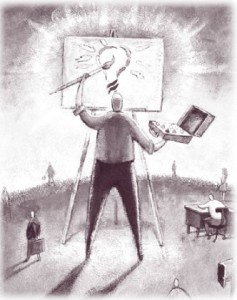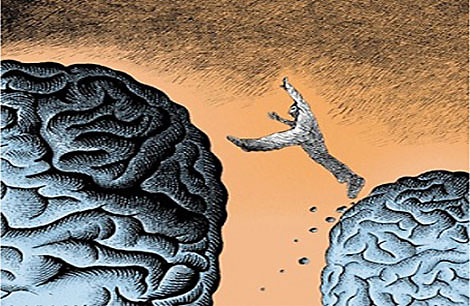Ein kleines Plädoyer für den Erhalt der reinen, Neugier-getriebenen Grundlagenforschung aus dem Buch The Demon-Haunted World: Science as a Candle in the Dark von Carl Sagan:
 Maxwell wasn’t thinking of radio, radar, and television when he first scratched out the fundamental equations of electromagnetism; Newton wasn’t dreaming of space flight or communications satellites when he first understood the motion of the Moon; Roentgen wasn’t contemplating medical diagnosis when he investigated a penetrating radiation so mysterious he called it „X-rays“; Curie wasn’t thinking of cancer therapy when she painstakingly extracted minute amounts of radium from tons of pitchblende; Fleming wasn’t planning on saving the lives of millions with antibiotics when he noticed a circle free of bacteria around a growth of mold; Watson and Crick weren’t imagining the cure of genetic diseases when they puzzled over the X-ray diffractometry of DNA; Rowland and Molina weren’t planning to implicate CFCs in ozone depletion when they began studying the role of halogens in stratospheric photochemistry.
Maxwell wasn’t thinking of radio, radar, and television when he first scratched out the fundamental equations of electromagnetism; Newton wasn’t dreaming of space flight or communications satellites when he first understood the motion of the Moon; Roentgen wasn’t contemplating medical diagnosis when he investigated a penetrating radiation so mysterious he called it „X-rays“; Curie wasn’t thinking of cancer therapy when she painstakingly extracted minute amounts of radium from tons of pitchblende; Fleming wasn’t planning on saving the lives of millions with antibiotics when he noticed a circle free of bacteria around a growth of mold; Watson and Crick weren’t imagining the cure of genetic diseases when they puzzled over the X-ray diffractometry of DNA; Rowland and Molina weren’t planning to implicate CFCs in ozone depletion when they began studying the role of halogens in stratospheric photochemistry.
These discoveries and a multitude of others that grace and characterize our time, to some of which our very lives are beholden, were made ultimately by scientists given the opportunity to explore what in their opinion were basic questions in nature.
Cutting off fundamental, curiosity-driven science is like eating the seed corn. We may have a little more to eat next winter, but what will we plant so we and our children will have enough to get through the winters to come?
Das Buch gibt’s auch auf deutsch, unter dem Titel Der Drache in meiner Garage. Oder die Kunst der Wissenschaft Unsinn zu entlarven. Allerdings nur noch gebraucht bei Amazon.


 Zwei Zitate aus der US-Sitcom (!)
Zwei Zitate aus der US-Sitcom (!) 







